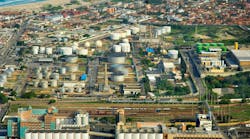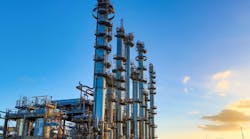Washington, DC�The American Petroleum Institute Wednesday rejected the charge that anticompetitive behavior by oil companies is behind sharp gasoline price increases in the Milwaukee and Chicago areas (OGJ Online, June 20, 2000).
API Pres. Red Cavaney said, �Claims to the contrary are misleading the American consumer. Those allegations do a disservice to the American taxpayer by encouraging competing investigations that focus attention and resources away from solving very real regulatory problems.�
The US Federal Trade Commission confirmed that it will investigate gasoline spikes that have pushed Midwest retail prices over $2/gal. FTC plans to submit a report to Congress in 3-5 weeks.
Cavaney said, �During times of volatility in gasoline markets, it is not unusual for investigations of our industry to be launched. Our record of being exonerated by those investigations is spotless.
�Time and again, our industry has been cleared of any wrongdoing in these matters, and we are confident that this investigation will have the same results. We call on the FTC to make clear its findings as soon as possible.�
He said, �The current situation is brought about by uncoordinated, competing regulations that have reduced refinery and distribution flexibility, raising costs and negatively impacting service to American consumer. The American public would be well-served by government addressing these matters.�
Cavaney noted that crude oil prices have risen 27% in the past 6 weeks, at the same time that industry was required to begin marketing more-expensive Phase II reformulated gasoline in Chicago and Milwaukee. He said the extensive use of ethanol in gasoline in the Chicago area is a contributing factor, making it difficult to move RFG containing methyl tertiary butyl ether from adjacent areas.
Cavaney said Midwest spot prices have dropped 47� to $1.17/gal since June 7, and refiners have raised their RFG production. �Things will settle out. Markets do work,� he said.
Environmental Protection Agency Administrator Carol Browner said Wednesday that the wholesale price of gasoline in the two cities has dropped 25�/gal and asked why retail prices had not dropped also.
Browner said EPA has not ruled out the possibility of granting marketers a waiver from selling Phase II RFG until the supply situation eases. Cavaney said a waiver could worsen the supply situation.
Vice-Pres. Albert Gore, the Democratic Party�s apparent presidential nominee, said he asked Energy Sec. Bill Richardson and Browner to meet with Midwest governors to determine �how the federal government can work with them to help solve this problem."
Gore charged, �Oil company profits have increased by nearly 500% in the first part of this year. These enormous and unreasonable profits suggest that big oil is gouging American consumers.�
Cavaney replied that �Last year industry was in the depths of economic straits� with oil prices at record low levels.
In Indiana, Gov. Frank O'Bannon declared an energy emergency Tuesday and suspended the state's 10�/gal gasoline tax for 60 days. The action will cost the state $11 million.

